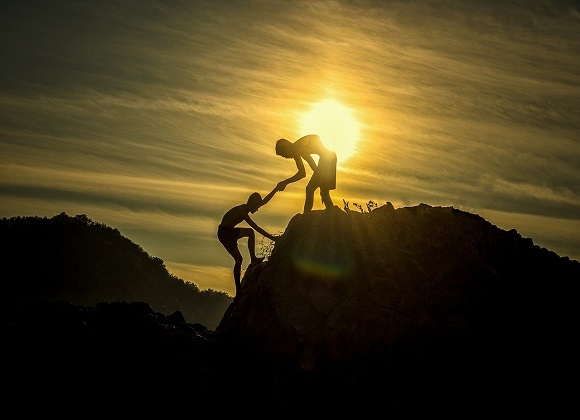Courses
Grow skills with quality courses
Pick of the week: Check out our round-up of this week's top picks from the most liked posts!

Sex Education in India: Work in Progress?
Being the largest democracy in the world and the fastest growing economy, around one-fifth of the population falls into the 10-19 years category. Being advanced and so-called “modern”, talking about sex or intimacy or sexual practices or birth control measures, still is taboo. Talking about one’s sexuality or sexual orientation is looked down upon and termed as vulgar. This leads to suppression of desires and needs of people along with their inquisitiveness revolving around the topic, especially for women. Modernizing requires us to broaden our mindset and talk about such ‘tabooed’ issues on an open platform, not when we grow up, but when we are growing up. Therefore, sex education at the school level is the need of the hour and we need to bring into practice, what the National Council of Educational Research and Training initiated.
Sex Education is the procedure of gaining knowledge and developing an open mindset as well as ideas about sex, sexual identity, human relations, closeness, gender roles, contraception methods, prevention of Sexually Transmitted Diseases (STDs) along with teaching students to take responsibility for their actions. This will help them make well-thought judgments in the future. Proper sex education at the school level helps develop emotionally stable children who feel secure and adequate to make the right decisions without being carried away by emotions. It helps provide knowledge about the physical aspect of sex behavior along with its psychological and sociological aspects, i.e. helps in improving the overall personality of a student. It helps students understand the changes occurring within and outside their bodies. It also educates them about the role of their respective genders along with developing responsibility and attitude towards each other within the social context.
Educating the students about sex, their preferences, and other aspects isn’t something to be ashamed of. Proper sex education reduces the negative results from sexual behavior, unwanted pregnancies, and STDs. It helps bust the myths attached to sexual behavior, body image, stigma, etc. It helps school children develop a positive and responsible attitude towards sexuality and helps them know about the pleasures and risks associated with it.
Teachers should be trained and educated to deliver effective health education. Successful implementation of the program requires not only resources but also community support. Parents should also discuss openly safe sex and sexual preferences. They should not treat it as taboo or hush the kid when he/she enquires about the same. Parents should understand that kids now have multiple avenues to find their answers, where they can be misguided. Therefore, they should sit and have an open discussion about these things along with answering their child’s queries. Sex education at all levels is an important idea of demonstration of modern health. It is a continuous process and should be encouraged to be taught in schools and colleges as a separate topic within health education.
.Divya Joshi | 12 May 2021

Learning a New Language
There is more than one way of expressing our thoughts in any human language. Some people may use a single word to express it. Others may use multiple sentences to describe their thoughts. The goal is to convey our feelings to others. When we start learning a new language, assuming that we already speak at least one language, the initial days of learning are hard: a whole new bunch of words and phrases. Learning becomes very difficult when the new language has a different script than the languages we already know. But can language learning be made easier? Do we have to learn multiple languages? What could be the first sentences to learn? Let’s see!
They say there is more than one way to express our thoughts and feelings. If we don't have the words, we express them with gestures; we try some or other means not to mention the drawings to express ourselves. But what if we're limited to words in a language? What if the only option before us is to speak in a particular language? And what if we have to express ourselves in multiple human languages, especially languages from different language families?
Learning a new language is very difficult. When we see children learning a new language (or even their first language), we are surprised at their rapid progress. And as adults, we're struggling to learn and retain vocabulary from a new language. After a while, we tend to forget about the different rules of grammar. I often feel confused about the right gender for objects and sometimes the right tense in a foreign language. Despite these struggles, I still love learning the language.
Here are some of my approaches to learning a new language. Some of these methods, I think, are also followed by other language learners. The first important question is how close the new language is to the language or languages you already know. This will give you an estimate of the effort required. One interesting way to do this is to take a look at the language tree. The language tree can help you visualize the distance between the new language and the languages that you already know. Do these languages come from a common language? Is this common language very high in the tree? Or is that far from the two languages you're comparing? These are important questions because they will help you decide whether you need to learn a new script, the common characters between the two scripts, their pronunciation, and even the presence of common words.
While learning a new language, most of us approach it by using word-by-word translation, which in many cases may not work for phrases or sentences. It may be useful to learn the translation of certain common nouns, but not very useful for phrases or even verb phrases. This is something I've been observing during language learning. Sometimes a verb phrase in a single language can be translated into multiple verb phrases. A sentence may use different verb phrases depending on the subject or the object of your sentence.
Sometimes a single word to express an emotion or to describe an object or concept may not exist in a new language. Some languages tend to economize words, while others do not. Words can have multiple senses. It may be difficult for language learners to make this shift easy. Language learners may either have to learn new words for every sense or associate every sense (at the beginning) to a single word in a new language.
Another important aspect of language learning is to be clear about the objectives from the very beginning. Are you mastering the language of written or oral communication or both? Written communication often requires more formal approaches, and the ideas expressed in written communication cannot be used in the context of oral communication. It might sound very odd to the listeners of a new language. Also, as concerns are written communication, it is important to remember that punctuation marks are not universal. Languages use several characters to express the end of a sentence. Languages may have more or fewer tenses, genders compared to your first language.
I've identified some of the major components of my language learning. My first step is to learn some new words, particularly some simple words to introduce yourself. At the same time, I'm also trying to watch videos in a new language, but with subtitles in any language, I know. This helps to get to know the words, and sometimes even to recognize the words that have already been learned in a language. This is a very long process since it needs to be repeated. Watching videos with subtitles helps to remember unfamiliar words and to understand the various contexts of use.
Is there a learning word order? Answers rely on the books and learning applications you use. But if I don't have all of these at my side, I'm approaching learning terms relevant to the five senses, a few common words of life, pronouns, frequently used verbs, adjectives, everyday objects, and places of interest. However, this also raises the question of the motives behind your language learning. If you're learning a new language, because you will be living in a city that speaks a specific language or you might have different motives to learn, as contrasted to someone interested in learning because of their interest in a new language, cultures, religion, movies or books.
Language learning is difficult for most of us. A lot of reading and practice may be required. However, two methods will benefit a lot in the learning of a new language. One is to listen and watch a few videos, and the other is to try to write and express your feelings. While there are many other learning apps and memory resources available for staggered learning, day-to-day practice plays a key role in language learning.
.Sanya Bhasin | 28 Apr 2021
.png)
National Parks and Wildlife Sanctuaries in India
Gurushala | 17 Feb 2021

How do we Define Success & Failure?
Remind me of any person, who is quite successful today and had reached this height without any setback in his life? Consider the instance of Jack Ma, the richest Chinese man, he was the one who applied to KFC with other 23 when it entered Chinese food market. All the other 23 interviewee were selected, he was the only one who got rejected but he never let this failure break him. Instead he, took this as a great opportunity to prove himself.
Already quoted, “Failure defeats losers, and inspires winners”
Once our former President Late Mr. A.P.J Kalam said, “If you want to glow like the sun, first learn to burn like it” which means if you want to reach the greatest heights of your life first try to face all the hurdles those are up in your way.
It seems that failure tends to be more public than success or at least that’s what we perceive it to be. But the truth is no great success was ever achieved without failure. It may be an epic failure or a series of failures like Edison’s many attempts. Whether we like it or not, failure is a major stepping stone to achieve our dreams.
It seems that failure tends to be more public than success or at least that’s what we perceive it to be. But the truth is no great success was ever achieved without failure. It may be an epic failure or a series of failures like Edison’s many attempts. Whether we like it or not, failure is a major stepping stone to achieve our dreams.
So, “Only those who dare to fail greatly, can ever achieve greatly” when Edison failed in his “t” attempts, he said he has found “t-1” ways that won’t work.
Mahendra Singh Dhoni, a well-known name in the field of cricket, today is said to have reached these heights due to his so-called “luck”. But do you seriously think his luck played such a pivotal role in his success? Where was his luck when he wasn’t able to score runs for India in his first few matches? Where was it when he and his family faced crucial circumstances? And where was it when he worked as a mere ticket collector in railways? None of us knows, but he knows how much he worked hard in those days of his life and didn’t just GIVE UP!
Never compromise when it come to your considerable efforts towards something, because that’s all what we can do “Focusing on our actions that will pave a way to our goals.” Never stop putting your best just because you’rescared about how it might turn out.
“And, Giving up is the only sure way to fail” explains well that a man without abidance can never achieve great success because he is the one who has never tried to taste failure just for his sake of fear.
Paulo Coelho said, “There is only one thing that makes success impossible and that’s: fear of failure”. The one who has a fear of losing will never ever win the race because due to his fear he won’t even try.
Always remember, if you aren’t prepared to be wrong, you will never come up with something that’s really great because the real pain lies in the fear of being mistaken. Failure should be our teacher, not undertaker. Failure is delay in success, not a defeat on the road towards it. Failure is just a detour from our road to success and not a dead end.
So, take a deep breath and remember, Every new day is a fresh start for you. Rock the world!!
Radhika Lakhotia | 17 Feb 2021

